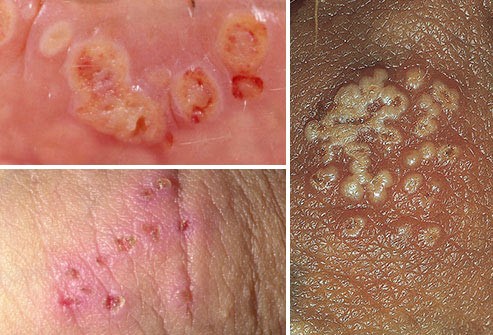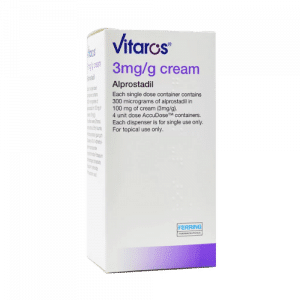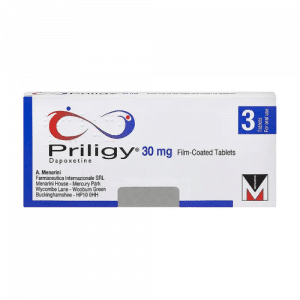
Aciclovir 400mg Tablets: Combat herpes virus infections effectively with Aciclovir, a proven antiviral medication. Ideal for treating outbreaks of genital herpes, cold sores, and other herpes-related conditions, Aciclovir works by reducing the virus’s growth and spread. Start treatment early to prevent sores or use as a suppression therapy to reduce outbreak frequency. Our pharmacy offers the generic, cost-effective version, ensuring the same medical efficacy as the brand-name Zovirax.
Aciclovir
£23.99 – £70.99
Product Information
About Aciclovir
Aciclovir is sometimes also spelt as Acyclovir and is better known by the original brand name Zovirax. Aciclovir tablets are an antiviral medication. The tablets reduce herpes virus growth and spread. A 5-day course of aciclovir 400mg tablets will typically reduce the duration of genital herpes sores by one or two days and also reduce the severity of symptoms and infectivity. If taken early enough aciclovir may prevent sores from breaking open. Taking aciclovir twice daily for 6-12 months can prevent (suppress) herpes outbreaks.
The best-known brand of aciclovir is Zovirax. Several different pharmaceutical companies make generic aciclovir, which is medically the same as Zovirax, but at lower prices. Dr Fox pharmacy supplies lower-cost generic aciclovir (see generic medicines FAQs).
Aciclovir is also used to treat other herpes family virus infections, particularly chickenpox, shingles, cold sores, and herpes family virus infections in immunocompromised patients. The dose and strength of aciclovir prescribed depends on the specific type of infection being treated.
For further information see NHS – Aciclovir (including Zovirax).
What is genital herpes?
Genital herpes is the name given to sores occurring in the vaginal area or on or around the penis caused by herpes viruses. Genital herpes includes herpes sores in the region of the anus (back passage). It is similar to cold sores which are herpes sores on the lips or around the mouth. Genital herpes used to be caused mostly by HSV2 (herpes simplex virus type 2) and cold sores by HSV1 (herpes simplex virus type 1). However, there is now a lot of overlap – HSV1 genital herpes tends to cause fewer recurrent episodes than HSV2. Because of this, it can sometimes be helpful to know which of the two herpes simplex viruses is causing your outbreaks – a doctor or STI clinic can take a swab to determine this.
Herpes viruses spread from person to person, usually by unprotected sex, or sometimes by kissing or orogenital sex.
Not every sore in the genital area is caused by herpes. It is important to see a doctor or STI clinic to have a diagnosis and to be tested for other sexually transmitted infections. Do NOT self-treat with antiviral medication without getting a medical diagnosis first.
For further information see NHS – Genital herpes.
Below are photos of herpes blisters:

More photos of herpes on genitalia from DermNet NZ.
What is recurrent genital herpes?
First infections with the herpes virus typically produce a small blister rapidly followed by a painful sore. A sore is an inflamed area of broken skin, usually a few millimetres across. Sores usually last a few days (5 to 10 days), during which time there are often also flu-like symptoms (fever, no energy, irritability). The sores then heal up. However, the herpes virus stays in the body close by and the infection and the sore can break out again from time to time. New break-outs are similar to first infections, although usually less severe. New sores occur in the same place as before. New sores in different places are unlikely to be caused by herpes.
Can I have sex whilst taking aciclovir?
During a flare-up, and possibly in between, a person with genital herpes is infectious and can spread the herpes virus to sexual partners. It is best to refrain from sexual contact during an outbreak of herpes. Using condoms protects transmission, but this protection is not 100% effective.
How does aciclovir treat genital herpes?
Treatment aims to reduce the severity and duration of the sores by taking antiviral medication each time a new sore breaks out. The most commonly prescribed antiviral medication is aciclovir tablets. Tablets should be started as early as possible once symptoms (tingling, pain) start, preferably within the first 24-48 hours. A course of treatment lasts 5 days.
Alternatively, people who get frequent or very severe outbreaks of genital herpes can take preventive treatment. This involves taking 400mg aciclovir twice a day for between 6 and 12 months
Aciclovir is not the only antiviral medication. There are alternative antivirals for herpes, namely famciclovir and valaciclovir. These work in the same way as aciclovir, but are less commonly prescribed. They are NOT available from Dr Fox.
Does aciclovir medication cure genital herpes?
A course of aciclovir, or other antiviral medications, does not eliminate the herpes virus or prevent future outbreaks. The herpes virus remains in the body after an outbreak, usually for many years, and will continue to produce sores from time to time. There may be months or years between outbreaks of the sores. Sores may break out more when a person is tired or run down, but often there is no pattern to outbreaks. They usually become less frequent over time.
How to take aciclovir medication
Repeat genital herpes: the standard dose for the treatment of recurrent genital herpes is one aciclovir 400mg tablet three times daily for 5 days.
Suppression of genital herpes: the standard dose of treatment for suppression therapy is one aciclovir 400mg tablet twice a day for an initial period of 6 months but can be taken up to 12 months.
Swallow tablets whole with plenty of fluids, or dissolve in a glass of water. Can be taken with or without food.
Other strengths and doses of aciclovir can be prescribed for treating other types of recurrent herpes infections. See your doctor if the standard treatment is not effective or if there are new symptoms or side effects.
It is important to drink plenty whilst taking aciclovir.
Missed doses can be taken late – but avoid double doses and do not exceed the daily dose.
Can anyone take aciclovir?
People over 65 years, those diagnosed with kidney disease (impaired renal function) and women who are pregnant or breastfeeding may not be able to take aciclovir. Checks are carried out during the Dr Fox online consultations and advice is given. Dr Fox Pharmacy supplies medicine to adults only (over 18s). If you are aged under 18 please contact your GP or a local sexual health clinic for testing and treatment.
If you experience a bout of herpes during pregnancy or while breastfeeding, visit your doctor to discuss treatment options.
Aciclovir tablets and other medication
People taking the following medications should consult a doctor or pharmacist before taking aciclovir:
- Probenecid (used to treat gout).
- Cimetidine (used to treat stomach ulcers).
- Mycophenolate mofetil (used to stop your body from rejecting transplanted organs).
- Ciclosporin (an immunosuppressant drug).
- Theophylline (used in asthma and other breathing problems).
- Zidovudine (used in HIV infection).
Side effects of Aciclovir
Like all medicines, this medicine can cause side effects, although not everybody gets them.
Allergic reactions (may affect up to 1 in 1,000 people). If you have a severe allergic reaction, stop taking Aciclovir 400mg tablets and contact a doctor (or telephone 999 in the UK) straight away. The signs may include:
- Rash, itching, or hives on your skin.
- Swelling of your face, lips, tongue, or other parts of your body.
- Shortness of breath, wheezing, or trouble breathing.
- Collapse.
Other side effects
Common (may affect up to 1 in 10 people):
- Headache
- Feeling dizzy
- Feeling or being sick
- Fever/fatigue
- Diarrhoea
- Stomach pains
- Rash
- Skin reaction after exposure to light (photosensitivity)
- Itching
Related Products
-
Erectile dysfunction medication
Eroxon ED Treatment Gel – 4 Pack
Rated 0 out of 5£25.00 Add to basket -
-
-




